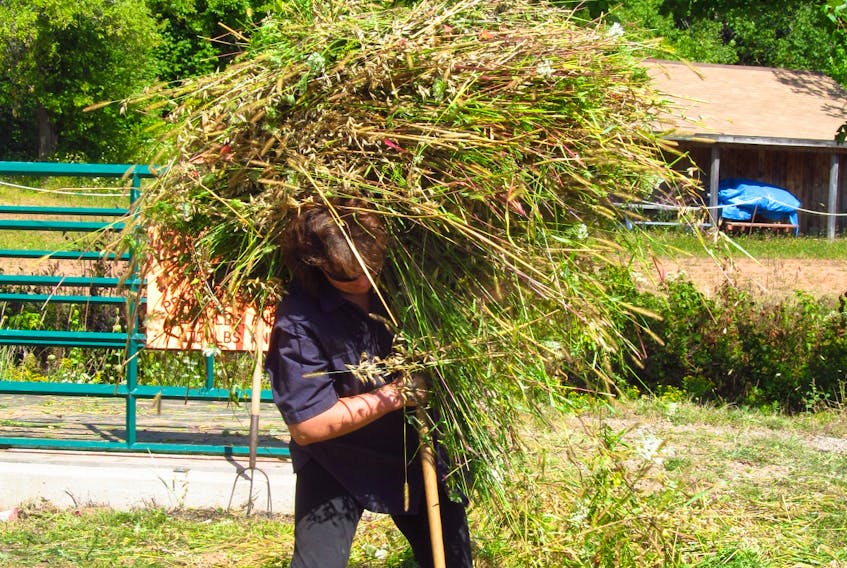With the grain fields a golden yellow and the leaves on the trees just starting to turn colour, driving around the countryside has been a confirmation of what a wonderful place Prince Edward Island is.
It is easy to forget that country schools on the Island used to open in mid-August, and then close for two weeks in September so school children could help with the potato harvest. Also, in those days the "foreign" workers who came to work on a farm, mainly to pick potatoes, usually came from Cape Breton, not from Mexico.
Farms, in general, and potato fields, in particular, were much smaller than they are now. Potatoes were picked with a very few simple machines and put into jute bags right in the field. Sometimes they were stored in the basement of the farmer’s house, as well as warehouses that were often large wide trenches dug into the ground, shored up on the sides and covered with a roof.
In the fall ships from around the world would be seen in the harbours of Souris, Georgetown, Charlottetown and particularly, Summerside. So many came to Summerside they often had have to wait in the bay for a berth at the dock.
Potatoes for shipment to Ontario, Quebec and the rest of the mainland went by insulated railcar. Yes, the Island did have a railway, in fact the cost of the railway when it was built 1871 was one of the principle reasons the colony of P.E.I. petitioned to become a province. The railway lasted just over 100 years. It was essentially defunct during most of the 1980s and was officially shut down on Dec. 31, 1989.
Potatoes weren’t the only crop that was labour intensive to harvest. Grain, mostly oats, was another.
Grain was harvested with a binder, a machine with an eight- or 10-foot blade. The machine cut the grain, bundled it and tied it into sheaves, maybe 30 centimetres or a foot in diameter. Binder twine was the cheapest string you could buy. The binder dumped sheaves on the ground. The sheaves were then gathered up by hand and stacked on their ends into piles called stooks. A stook was usually two rows of five, with a sheaf at each end, for a total of twelve.
After standing for a couple of days to dry out, the stooks were taken to a threshing machine. The thresher knocked the grain off the straw. The grain went into a bin to feed the horses and cows, and the straw was used as bedding for the animals.
These days, grain is all harvested by combine with about a 20-foot blade. These big machines cut the grain, thresh it and either eject the straw to be harvested into bales, or chop it up so it can be plowed into the field to enhance the organic matter of the soil.
Nobody has seen a field of stooks, or sheaves of grain or for about 50 years.
Alan Buchanan, the story-teller from Eldon, has a lovely little yarn that he could only tell in old folks homes these days, because a majority of younger Islanders wouldn’t know a stook from a stork.
The story involves a new minister coming to the village church. Mrs. Jones, a widow, lived a few miles out of the village. The minister was making the rounds of his parishioners and she wasn’t surprised when one day he came to call.
Mrs Jones invited him to sit in the front parlour while she made some tea. The good reverend, waiting patiently, glanced at the many family photos which were on the mantle and on tables in the room. He couldn’t quite figure out how many children the Joneses had, so it was one of his first questions when Mrs. Jones sat down with her tea.
“Just eleven,” she said. “We were going for a stook, but we ran out of twine.”
Alan Holman is a freelance journalist living in Charlottetown.









